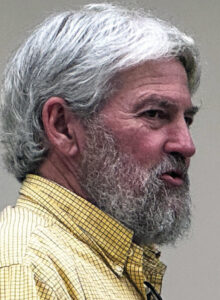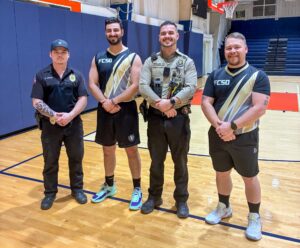NW-SCC’s Phi Theta Kappa holds virtual seminar on informed voting
With Election Day fast approaching, the Northwest-Shoals Community College Alpha Zeta Iota Chapter of Phi Theta Kappa has partnered with the University of North Alabama’s political science department to host a virtual seminar: Conscious and Informed Voting in a Post-Truth World.
The virtual seminar will take place Oct. 29 at 5:30 p.m. To register for the event, go to http://bit.ly/ConsciousVotingSeminar.
According to NW-SCC, the seminar will explore democracy in a “post-truth world,” seeking to inform voters on how to make conscious and informed voting decisions as well as highlighting the importance of voting. Following the panel discussion, the audience will have an opportunity to ask the experts questions.
Panelists for the forum are Dr. N. Alexander Aguado, professor of political science at UNA; Dr. Butler Cain, chair and professor of the Department of Communications at UNA; Rep. Jamie Kiel of Alabama State House District 18; and Mark Libell, legislative director/deputy chief of staff for Sen. Doug Jones.
Pam Peters, adviser for the Alpha Zeta Iota Chapter of Phi Theta Kappa, said chapter officers held a voter registration drive to encourage students on both campuses to register to vote.
“Our Phi Theta Kappa officers are very passionate about this topic and excited about the upcoming seminar,” said Peters. “They have worked hard to encourage students to let their voice be heard through voting and want to make a positive impact in our community.”
The seminar is free, and the public is invited to attend.
VOTING AND THE VIRUS
The coronavirus pandemic has shrouded the election in fear for some, with concerns about contracting and spreading the virus at the polls adding to the challenge of voting for leaders at the local, state and national level. The Alabama Department of Public Health has joined election officials and others in urging Alabamians to practice healthy behaviors when making their voices heard by voting in the Nov. 3 general election.
A guiding principle in lowering the risk of COVID-19 transmission is that the more an individual interacts with others, and the longer that interaction continues, the higher the risk of COVID-19 spread. Personal prevention practices and environmental cleaning and disinfection are important in lowering risk.
Organizations in the VoteSAFE Public Health Coalition are working to ensure the health of voters and emphasize that voting is critical to a thriving community. VoteSAFE wants to communicate the message that decisions made on local ballots will have a direct impact on each person’s health as well as the health of the community. Social, economic and environmental conditions are impacted by policies supported or opposed by elected officials.
The Centers for Disease Control and Prevention and ADPH recommend the following practices for voters:
· Wash your hands before entering and after leaving the polling location.
· While at the polls, use alcohol-based hand sanitizer containing at least 60 percent alcohol frequently, especially after touching surfaces frequently touched by multiple people, such as door handles.
· Cover coughs and sneezes with a tissue or the inside of your elbow. Throw used tissues away in lined trash cans.
· Wear a facial covering unless you have trouble breathing, are incapacitated or are otherwise unable to remove the mask without assistance. Children younger than 2 should not wear masks.
· Maintain at least 6 feet – about two arms’ length – of distance from others. Continue social distancing even when wearing masks.
Other suggestions include voting absentee, avoiding crowds and voting at off-peak times such as mid-morning. To help minimize risks and save time, consider these tips:
· Check your voting location and requirements in advance because they might have changed because of COVID-19.
· Verify your voter registration information is correct before going to the polls.
· Contact your local election office for additional information for voters with disabilities.
· Make sure you have a valid photo identification to avoid delays.
· Review or complete a sample ballot ahead of time to speed the process of casting your ballot.
· Bring your own black ink pen.
· Bring a stylus or similar object for use with touchscreen voting; however, check with poll workers before using it.
For more information, visit https://www.cdc.gov/coronavirus/2019-ncov/community/election-polling-locations.html.








